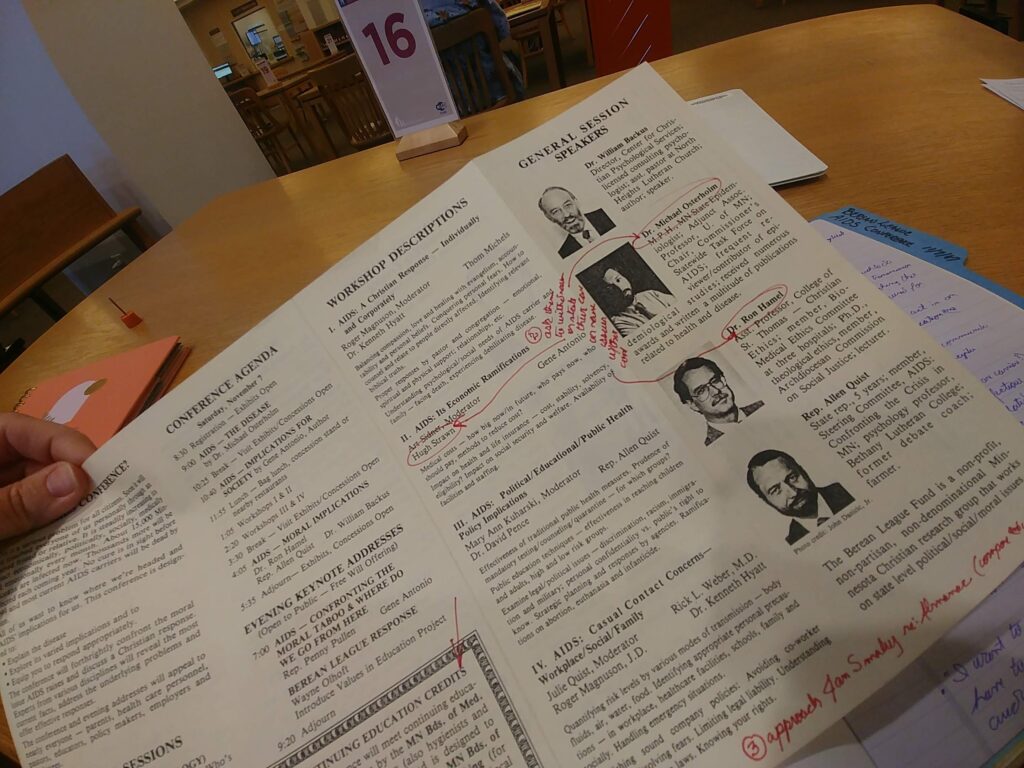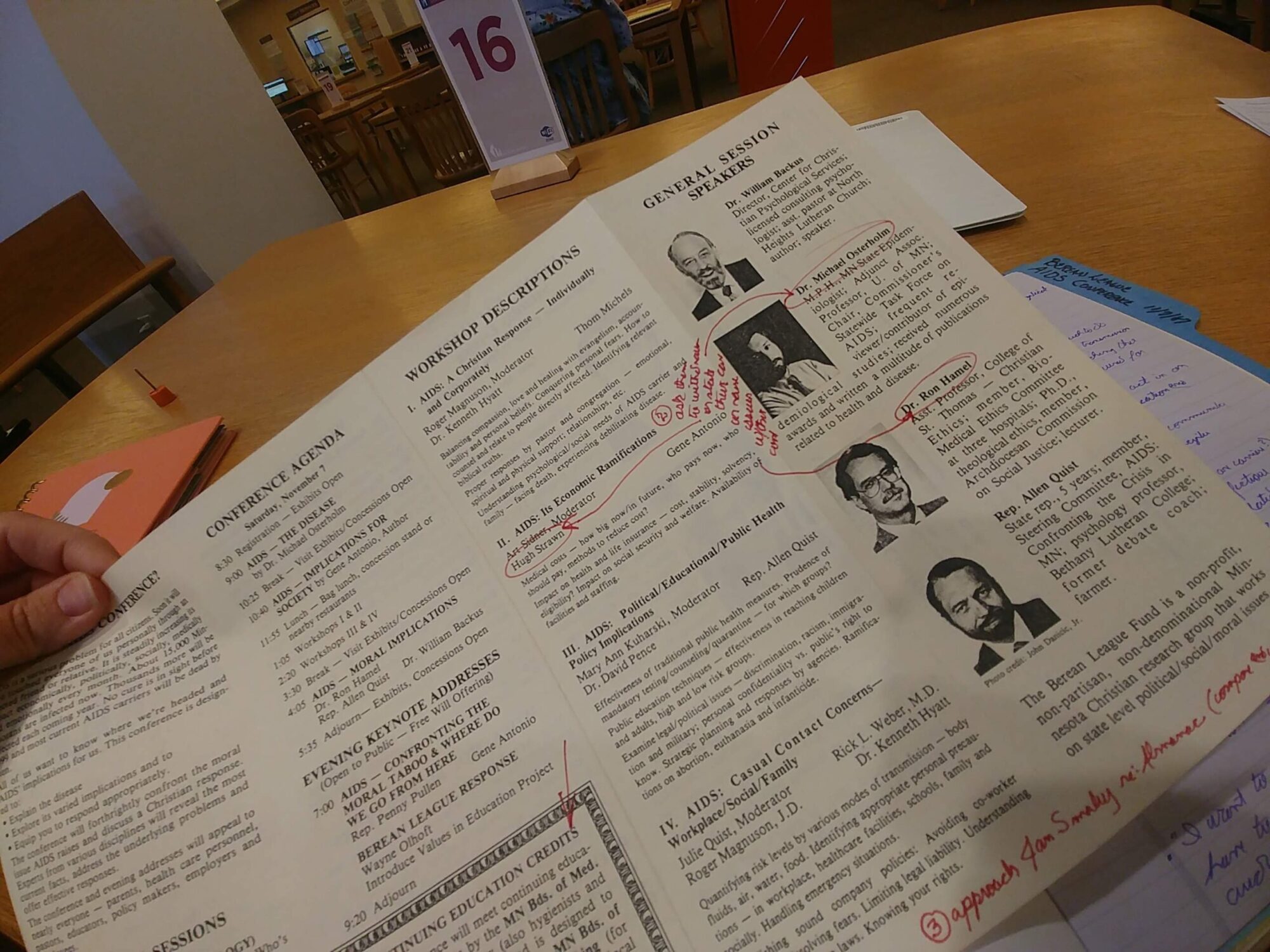I’ve been a public services variety librarian for over 10 years now and in that time I have encountered and answered hundreds of reference questions. There are always your run-of-the-mill questions for the context of a particular library: academic libraries teeming with students seeking peer-reviewed articles on whatever the topic du jour is for the paper that is due tomorrow to scholars in a special collection library seeking records that place people in particular places and times. Of course there are always very memorable questions that will tend to get lodged in your brain and pulled out to talk about whenever you are seeking to be slightly amusing when you tell someone you’re a librarian at a party of some kind.
Some of my favorites along those lines include:
- I’m communicating with the spirit of a dead Civil War soldier who had unresolved marital issues. How can I bring peace to his spirit by proving that his wife lied on the census? (Tall order, dude, but I might suggest looking for a birth/baptismal certificate.)
- Where can I find a map to abandoned mine shafts that I could climb into? (Newsflash: not a good idea, sir. Also, you’re looking at this map upside down. )
- How do I make musical instruments out of vegetables? (I kid you not, this is a whole thing.)
However, the reference question that I have not been able to get out of my head for years is a relatively simple one. One that I remember very few details about, except for the fact the asker wrote an email, was looking for a particular book, and did not live close to the library in the Twin Cities (thus the response of come to the library and look at said book was not an option).
The book in question? Values in Public Education by David Pence and Philip Sackett. Seems like a relatively innocuous query. However, once you read the full title of the book and do a simple WorldCat search; you realize there is a much bigger story to explore here. You see the full title of the work in question is Values in Public Education: AIDS education, the Trojan horse of the sexual revolution : common sense, good health, and moral discipline.
Sit with that for a moment.
Then realize that there are only 3 libraries in the whole WorldCat system (which spans the globe) that hold this title:
1) The Minnesota Historical Society (where I worked at the time)
2) The Minnesota Legislative Reference Library
3) The Jerry Falwell Library at Liberty University
That’s a book with a story. A story that led me to this guerrilla theatre costume by simply searching for Berean League (stated publishing organization of said book) in the MNHS Collections Online system. So, there’s an organization who published a book about AIDS education that librarians determined was significant to Minnesota legislative history as well as whatever the collecting parameters of the Jerry Fallwell Library are. The same organization held an AIDS conference in St. Paul in November of 1987, which attracted protestors who put on a theater piece as part of their demonstration.
So many questions. What exactly was the Berean League? What precisely were they advocating for that generated protest? How big was the AIDS epidemic in Minnesota? Who stood (both collectively and individually) in opposition to the ideas the Berean League presented? Was actual AIDS legislation and public health efforts impacted by this work? How did AIDS impact individuals, groups, and the larger society in Minnesota in the 1980s? How did what was happening in Minnesota at the time correspond to the larger national and international experience of the AIDS epidemic?
Now librarians deal in questions and conversation, that’s our bread and butter; however, doing deep dive research to answer these questions was out of scope for my position. So, I channeled that energy into creating a research guide to inspire and assist other researchers in answering some of these questions: AIDS Crisis in Minnesota Research Guide. Bigger questions and deeper research would have to wait.
Until now.
During the experience of the COVID-19 pandemic I thought about the history of AIDS in Minnesota a lot. I thought about the people who were interviewed as part of the Not Waiting for a Cure oral history project and wondered what those people who are still living thought about all things COVID. How much of what was happening now was painfully familiar or starkly different? Collectively the state and local history field was making a lot of references to the 1918 flu (with good reason), but larger reflection on AIDS seemed to be missing from the broader conversation (as far as I could tell). It was one of these nights when I was pondering the parallels that I found the following piece of digitized news footage via the Tretter Collection at the University of Minnesota: raw footage of the Berean League conference protest. All one hour, thirteen minutes and forty seconds of it. It had been recorded and saved and donated and digitized. I was so happy and astonished I nearly fell off my chair.
And thus, my resolve to keep going with the questions was renewed. I pulled together my thoughts about all of this and applied for a research fellowship with the Gale Family Library (where I had formerly been employed as a librarian), which I am happy to report that I received.

I will be making a presentation to the staff about my research in January, followed by submitting an article on the AIDS Conference and related protest later in the spring. In the meantime, I will be updating this blog with my discoveries as well as tips and tricks for doing this type of archival research. It’s my hope that through this work I will enable others to more easily research the experience of the AIDS crisis in Minnesota and perhaps apply any wisdom gained to our lives today.

One response to “Once Upon a Reference Question: Researching AIDS, Politics, and Public Health in Minnesota History”
You are such a talented storyteller! I can’t wait to follow your research and learn about this interesting moment in history through your eyes.